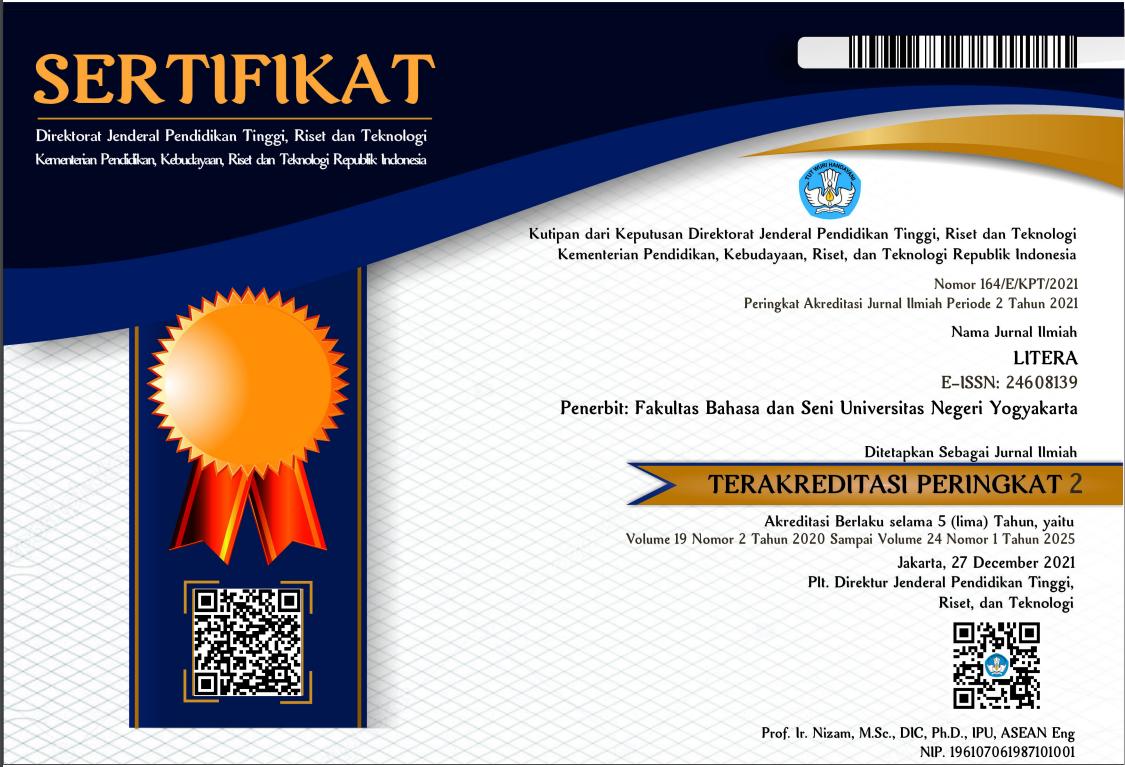EUFEMISME DAN DISFEMISME DALAM SPIEGEL ONLINE
Abstract
show that the forms of grammatical units of euphemisms and dysphemisms in Spiegel Online consist of words, phrases and sentences. The backgrounds of the use of euphemisms in Spiegel Online are: 1) to avoid the use of words which can cause panic or anxiety; 2) to mitigate speech; 3) to diminish or tone down a painful evocation or tragedy; 4) to engage in diplomacy or rhetoric purposes; 5) to replace forbidden words, taboos, vulgar or negative imaged-words; 6) to hide something; 7) to respect or appreciate others; and 8) to tease or criticize others smoothly. The
backgrounds of the use of dysphemisms in Spiegel Online are: 1) to constitute taboos, improper, or immoral matters; 2) to show one’s dislike or disagreement; 3) to give negative description; 4) to show anger or irritation; 5) to scold; 6) to show disrespect;
7) to mock; 8) to exaggerate or overstate; 9) to criticize; and 10) to show trivial matters.
Full Text:
PDFDOI: https://doi.org/10.21831/ltr.v10i1.1172
Refbacks
- There are currently no refbacks.
______________________
__________________________________________________________________________________________________
Litera Journal is published by the Faculty of Languages, Arts, and Culture Universitas Negeri Yogyakarta in collaboration with Himpunan Sarjana Kesusasteraan Indonesia (HISKI)
The International Journal of Linguistic, Literature, and Its Teaching at http://http://journal.uny.ac.id/index.php/litera/ is licensed under a Creative Commons Attribution-ShareAlike 4.0 International License
__________________________________________________________________________________________________















